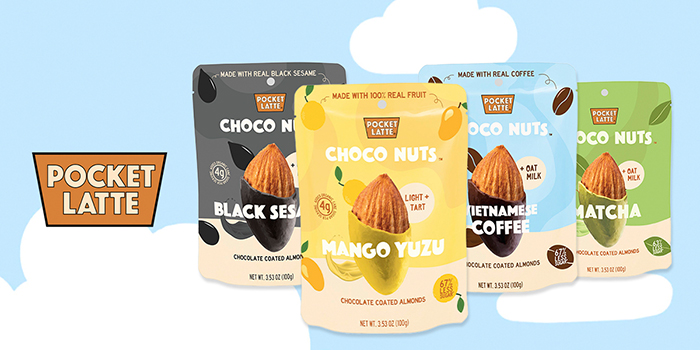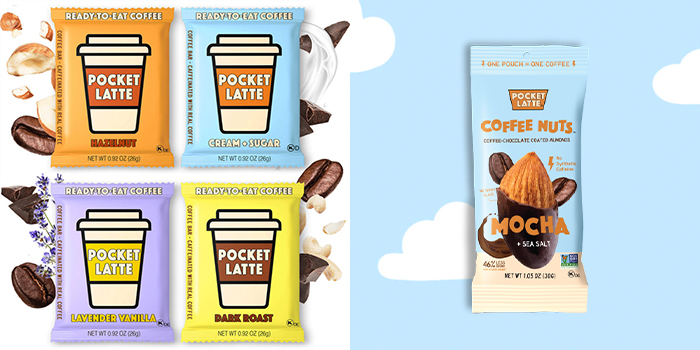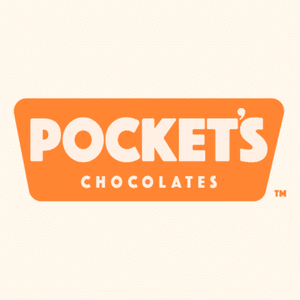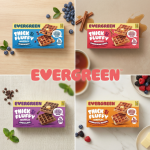Pocket Latte Brings AAPI Heritage Into The Narrative, Expands Beyond Energy

In honor of Asian American and Pacific Islander Heritage Month, Pocket Latte co-founder and CEO Chris Young took to LinkedIn to open up about the “prejudicial hurdles and preconceived notions,” his founding team has faced as “perceived foreigners” in the chocolate category.
“We realized we’ve been fighting an uphill battle,” Young said in the post. “From day one, we felt like we needed to conceal our Asian heritage for [the chocolate] industry to take us seriously. Today, that all changes. We’re making it our purpose to challenge this narrative.”
As a sign of its intentions, Pocket Latte is rolling out a new line of oat milk-based chocolate covered almonds, dubbed Choco Nuts, in four Asian-inspired flavors: Mango Yuzu, Black Sesame, Matcha and Vietnamese Coffee.
What is Pocket Latte?
Founded in 2019 by Young, his mother, Young Kwon, and the brand’s creative director, Lynn Pham, Pocket Latte was first positioned as a caffeinated confections company, selling individually wrapped, coffee-infused chocolate squares. The brand originally aimed to be a “counter-product” to the hyper-masculinized energy drink industry, he explained.
But in the following years, thanks in part to innovations like a caffeine-filled Mocha-covered almond, led Pocket Latte to identify more as a conventional chocolate company, Young said. Inspired by his mother’s example, raising him as a single, working mom, coupled with consumer research, Young and his team refined the brand concept to build a portfolio of convenient products for busy women that could serve as a Starbucks substitute.
“Men can show up at work with a Red Bull or Monster – that’s perfectly normal,” Young said. “But a lot of women expressed discomfort in the idea of showing up to work with an [energy drink]. That made sense [to us], intuitively, so then we thought okay, well, if not that, then what do they have? It’s either the K-Cups at work or stopping by Starbucks every morning.”

What’s the new direction?
As Pocket Latte’s brand identity moves into the next stage, energy has taken a back seat. The Choco Nuts line doesn’t feature any added caffeine aside from natural trace amounts in the Vietnamese Coffee and Matcha varieties. According to Young, the line instead aims to highlight nostalgic Korean flavors from his mother’s childhood, though Kwon was initially somewhat apprehensive about the idea.
“She’s been to the shows and she’s experienced a lot of that [prejudice],” said Young. “When I told her that we’re going to make this change, she was very excited and then she looked really concerned. She then said that she’s going to pray for me, basically, as if we’re going up against something that we can’t beat.”
However, Young believes he can help inspire minority representation in the category, and at large, with the new line. He also understands that maintaining Pocket Latte branding with the new line, which features an oat milk-based chocolate, may lead to consumer confusion initially, but said the decision to carry the name over was deliberate, and remains accurate despite its connotation.
“If Starbucks or a non-ethnic cafe makes a matcha with milk, [they] would call it matcha latte because latte literally just translates to milk,” Young said. “But if an Asian cafe, like a Boba shop, makes any flavor with milk, everyone expects it to be called milk tea. That sounds pretty generic, but it is more or less the same thing as calling it a latte. We know we will get a lot of question marks, but I guess the whole narrative [now] is to invite those question marks.”
The brand has also renamed its top-selling caffeinated chocolate square flavor, Cream & Sugar, to Vietnamese Coffee. Young said this change is actually what initially inspired the new chocolate covered nut line; despite that,Young initially worried “that would make our best seller, potentially become our worst seller almost overnight.”
According to Young, the idea for these changes had been brewing for some time, but the team reached its tipping point after conducting some research into the chocolate set within their local Whole Foods. The team discovered that, of the 28 chocolate brands on-shelf, none were minority or BIPOC-owned.
“That blew me away. I thought it might be like 80/20 or 70/30, but zero percent? That’s when I realized this has to change,” Young said.
He emphasized he doesn’t fault the natural grocer, or even buyers and brokers, but said he believes the lack of representation is due to the industry at large and its tendency to focus on better-for-you and sustainability claims, due to health and supply chain concerns specifically around chocolate, rather than the people behind each brand.
What’s next?
Pocket Latte is focused on using the new line to highlight the lack of minority-owned chocolate companies. While the brand will focus on D2C at first, Young said he plans to present the line retailers down the line, offering them an opportunity to help be a part of the change.
“The amount of support that we’ve gotten from the industry so far has blown away our expectations,” Young said about responses to his LinkedIn post. “Right now, the support systems, the consumer base, the education and the media that’s willing to amplify your voice – all these tools are there. I think right now is a good time to make that push. Ten years ago, I would have called it suicide.”
In addition to helping retailers diversify their chocolate sets, Young is also committed to helping lift up diverse founders to join in on his mission. Starting this week, he will be hosting “Office Hours” where he offers time slots each week to advise other minority or BIPOC founders struggling with similar pain points or hurdles.
“I’ve talked to a lot of founders that have had similar experiences and the common denominator is that you feel like you’re forced into hiding, where you have to pretend, overcompensate and show that like, ‘I’m not Asian, I’m definitely American,’ and show that very visibly. But, at the end of the day, that is who you are and people will see that.”


















